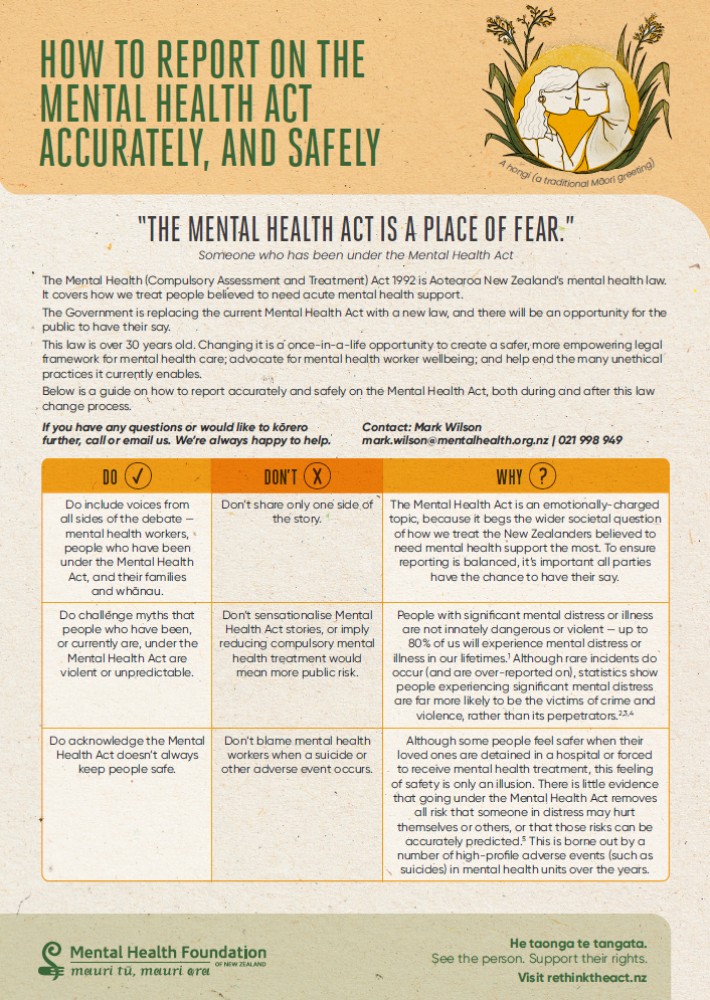
“I lost my rights, my job and almost the last bit of hope I had because of the biased way the Mental Health Act was used against me.
Existing mental health legislation mandates the mental health system is the authority and expert on my wellbeing, my experiences and my needs — an unhelpful and dehumanising approach.
The new law must ensure any decision-making processes are collaborative and equally value my expertise alongside that of my whānau, kaumātua, kuia and skilled professionals (including people with lived experience).”
-Kerri Butler, Māori lived experience leader

The Mental Health (Compulsory Assessment and Treatment) Act 1992 is Aotearoa New Zealand’s mental health law.
It covers how we treat New Zealanders believed to need acute mental health support, and is over 30 years old.
Every 46 minutes, a New Zealander goes under this law.
It’s widely agreed the Mental Health Act needs urgent change. On 1 October, 2024 the Government released a draft Bill to replace the current law. The public can now have their say on this draft law until midnight on Friday, 20 December as part of the legislative process.
The language we use to describe the Mental Health Act, or any social issue, is powerful. It can be used both to make great progress, or to reinforce prejudiced and discriminatory attitudes towards people with mental distress or illness. The language and framing we choose to use is always within our power.
For guidance on how to report accurately and safely on the Mental Health Act both during and after this law change process, download our A4 factsheet below.
All our work is backed by evidence, research, and what we hear from New Zealanders every day.
